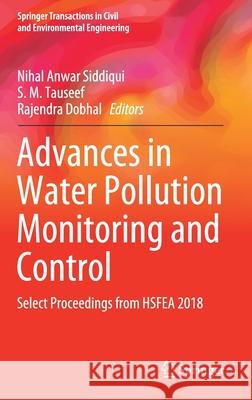Advances in Water Pollution Monitoring and Control: Select Proceedings from Hsfea 2018 » książka
topmenu
Advances in Water Pollution Monitoring and Control: Select Proceedings from Hsfea 2018
ISBN-13: 9789813299559 / Angielski / Twarda / 2020 / 179 str.
Advances in Water Pollution Monitoring and Control: Select Proceedings from Hsfea 2018
ISBN-13: 9789813299559 / Angielski / Twarda / 2020 / 179 str.
cena 606,65
(netto: 577,76 VAT: 5%)
Najniższa cena z 30 dni: 578,30
(netto: 577,76 VAT: 5%)
Najniższa cena z 30 dni: 578,30
Termin realizacji zamówienia:
ok. 16-18 dni roboczych.
ok. 16-18 dni roboczych.
Darmowa dostawa!
Kategorie:
Kategorie BISAC:
Wydawca:
Springer
Seria wydawnicza:
Język:
Angielski
ISBN-13:
9789813299559
Rok wydania:
2020
Wydanie:
2020
Numer serii:
000775668
Ilość stron:
179
Waga:
0.45 kg
Wymiary:
23.39 x 15.6 x 1.27
Oprawa:
Twarda
Wolumenów:
01
Dodatkowe informacje:
Wydanie ilustrowane











